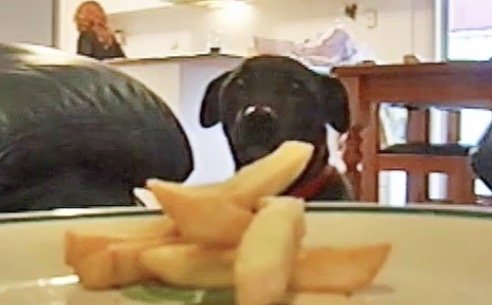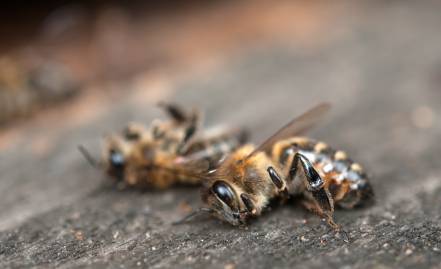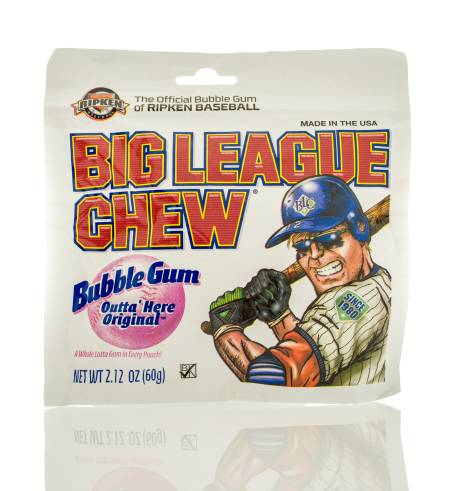Connect with a verified veterinarian in minutes. Licensed vets are available 24/7 to answer your questions. No need to worry about your furry family member.
French fries—don’t you just love them? They make a great side to many dishes, including hamburgers, grilled chicken and more! And we’re pretty sure your dog also enjoys French fries, are we right?
Most dogs love everything we eat. Does your dog sit and wait for his share when you’re eating some fries? The answer is probably yes, but are fries good for your dog?
What is French Fries?
French fries are a staple food item that is used in many restaurants and fast food chains across the world (such as McDonald’s). They are a fried potato that is often deep fried and topped with salt, ketchup, or other condiments. The common fast food French fries come in small pieces, and they are commonly used as an accompaniment to burgers and other sandwiches.
Fried foods are commonly thought to be okay to eat, but many of them contain fat, carbs, and calories that are not good for your health. French fries are no exception. These types of fried foods are high in calories and fat, which means that they will make you gain weight if you eat too much of them. Fatty foods like fast food French fries are also bad for your health because they contain trans fats, which is a type of fat that can raise your bad cholesterol levels.
Now, if it’s bad for your health, are French fries bad for dogs as well? Can your dog eat French fries? Let’s explore the answer to this question now.
French Fries & Dogs
As an occasional treat, given one or two at a time, French fries are probably OK for your dog. However, French fries eaten on a regular basis could cause some health issues for your fur baby.
For one thing, French fries have no nutritional value for your dog. While dogs love these salty, crunchy snacks, they don’t need to eat French fries to stay healthy.
While French fries are toxic for dogs, they do contain a lot of salt, fat and carbohydrates. Fat and salt can lead to health problems such as obesity, heart disease, and even pancreatitis. Carbohydrates are also difficult for a dog to digest.
When a dog ate French fries, they could experience stomach cramps, vomiting, diarrhea, and even lethargy. If your dog is having a problem digesting carbohydrates, you should consider switching to low-carbohydrate foods.
In addition, there are dogs who are allergic or have an intolerance to potatoes.
If your dog eats too many French fries at one time, he may develop the following symptoms:
- Vomiting
- Diarrhea
- Upset stomach
- Excessive thirst or dehydration
- Changes in urination
- Severe allergic reaction (which may include hives, difficult breathing or swallowing, swelling)
- Seizures (from salt poisoning)
- Bloat (from the high fat in the fries)
If your dog develops a severe allergic reaction, this is a life-threatening medical emergency. You will need to get him to the vet as quickly as possible.
And if he develops seizures and other worrying symptoms after eating a lot of French fries, you’ll need to take him to the vet immediately.
While a couple of fries once in a while may not hurt your canine companion (unless he is allergic), it’s best to avoid giving him French fries on a regular basis. The risks to his health just aren’t worth it.

Review symptoms, medications & behavior to keep your pets healthy with a Vet Online in just minutes.
Ask a Vet Live NowSafe Alternatives to French Fries
Instead of human food, dog food is better for your dog’s health. Feeding your dog a healthy diet of dry dog food and canned dog food will give him the nutrition he needs to stay healthy. You can also feed your dog with homemade dog treats such as beef liver, lamb liver, beef heart, or raw carrots and apples. Raw foods are very nutritious for dogs, but many dogs are scared of eating raw foods. It is recommended that you give your dog a piece of raw meat every other day in small pieces. If you feed your dog raw meat every day, he may not eat it at all because he thinks it is too hard to chew on. Feeding your dog small pieces of meat will help him get used to eating the meat and will make him feel more comfortable when he eats it.
Your dog’s diet should also include other healthy foods such as chicken, turkey, fish, eggs, and fruits. Healthy dog food is essential for your dog’s good health. A dog’s digestive system is not as strong as a human’s, so a dog needs a healthy diet that will make it easier for him to digest his food. Eating french fries might upset your dog’s stomach if he has a sensitive stomach. In addition, as mentioned, if your dog has allergies he may have problems digesting French fries. So if you want to feed your dog French fries, make sure that you give him some kind of healthy treat after eating it to avoid making his stomach upset.
If your dog is addicted to fries, then consider giving him on of these safe alternatives:
Rather than giving your French fry-addicted dog the unhealthy version, consider this snack: Wholesome Pride Sweet Potato Chews. These resemble fries but are made with one single ingredient—sweet potatoes. Dogs usually love sweet potatoes, and they’re healthy for pups, too!
A large amount of seasonings and oils can be dangerous for dogs. Vegetable oil is the most common ingredient in French fries, and this can cause heart problems. This is not the case with veggies and fruits, which are full of nutrients.
In addition, avoiding foods that contain artificial flavors and colors is important. A dog can be affected by these artificial flavors and colors, which can cause health problems. The pancreas of a dog can be affected by the artificial flavor and colorings, which can lead to pancreatitis. The blood pressure of a dog can also be affected by artificial flavors and colors, which can lead to hypertension. Your pooch will also benefit from getting more vitamins and minerals from the foods you feed him. Foods that are good for dogs are low in fat and sodium. These are important nutrients for dogs, as they will help your dog to keep his body healthy.
Another food that is better for your dog is an organic, homemade diet. These are full of nutrients and proteins that your dog needs to stay healthy. You can make your own homemade dog food by purchasing meat and vegetables from the grocery store. Cook the meat and vegetables together, and add healthy ingredients such as beans, fruit, and vegetables. Then, feed your dog this homemade dog food. This is a much healthier option than feeding your dog fast food. When you make your own dog food, you can control the level of protein and fat that you want to give your dog. It is also possible to feed your dog a raw diet.
Another way to make your own dog food is by making dog treats out of high-quality meat or veggies. This is a great way to give your dog something tasty while keeping him healthy at the same time! Your furry friend will love this! You can make homemade treats out of your dog’s favorite food, such as chicken or salmon. Mix the meat or veggies with healthy ingredients such as pumpkin, sunflower seeds, and flax seeds. Add seasonings to your dog’s food if you want to make your own treats. For example, you can add a little bit of cayenne pepper or garlic powder to your dog’s food. This will make the treats tasty and healthy at the same time!
A French fry or two won’t hurt your dog if he gets them every so often. But if he has a French fry fetish, a doggie treat that resembles French fries may do just the trick!
Connect with a verified veterinarian in minutes. Licensed vets are available 24/7 to answer your questions. No need to worry about your furry family member.

Tom
Tom has always loved to write since he was little - he wanted to be either a writer or a veterinary doctor, but he ended up being a professional writer while most of his works are based on animals. He was born in San Francisco but later moved to Texas to continue his job as a writer. He graduated from the University of San Francisco where he studied biotechnology. He is happily married and a soon to be father!
Review symptoms, medications & behavior to keep your pets healthy with a Vet Online in just minutes.
Ask a Vet Live Now





